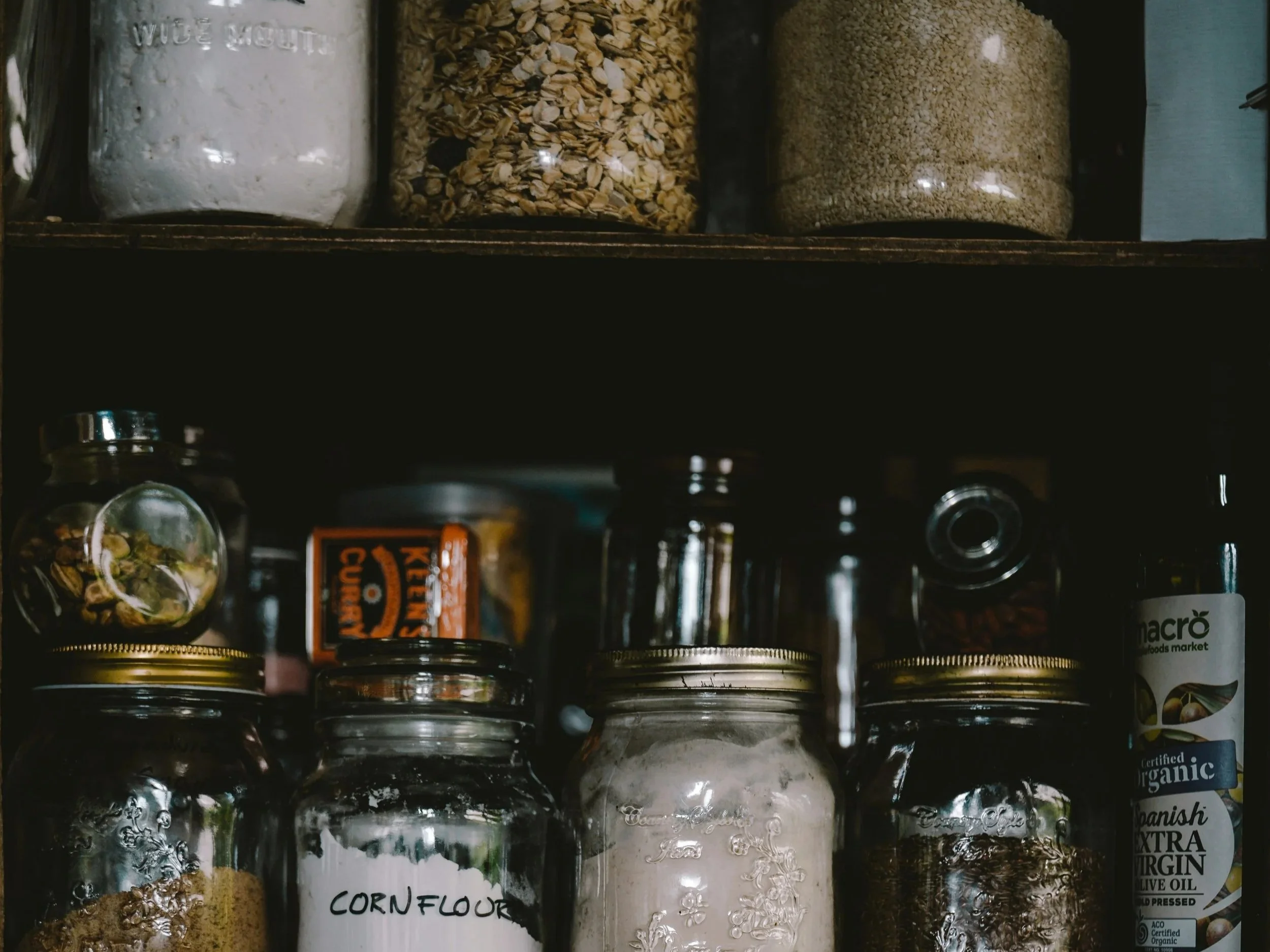How to Create a Healthy Family Meal Plan
Having a meal plan saves time and money, and makes it much easier to make healthy, nourishing choices – especially if you need to balance different family preferences. Download and print out a few copies of my free meal-planning template, make yourself a nice cup of tea and let’s get started.
Meal planning doesn’t have to be restrictive. Some clients prefer to write a list of 5–7 meals for the week and then decide on the day what they’d like to cook and eat according to what’s happening that day and their energy levels rather than sticking to a strict plan.
My Most Important Tip…
Cook once, eat twice (or more). Once you have your list of meals take a look and see what you can double and freeze to create a homemade ready meal, or eat again in the next couple of days. You can use the ‘B’ tick boxes on my free meal plan to highlight which meals you can double or even triple - you’re future self will be so pleased you have.
Before You Start
Do a quick stocktake of your fridge and cupboards and note any ingredients that are looking a bit sad or need using up to incorporate into your plan. There’s a place on the planner to note these down.
Image Jake Charlie
Step 1: Start with Protein
This will depend on your personal preferences and taste but consider:
Legumes (cheap, sustainable, speedy and also a great source of fibre) – chickpeas, lentils, beans
Nuts, nut butters, seeds
Tofu, tempeh, edamame beans
Oily fish – wild salmon, mackerel, trout, anchovies
White fish and seafood
Red meat – beef, pork, lamb, game
Eggs
Dairy – cheese, natural yoghurt
You can also mix proteins.
Image Odiseo Castrejon
Consider a Weekly Rhythm
You might find it helpful to have a set plan for the week, e.g. meat-free Mondays, tofu Tuesdays, fish Fridays, or mix it up. If you’re feeding a family then children often find it helpful to have a routine.
Reduce Food Waste
Keep use-by dates in mind. For example, if Sunday is the best day for you to do a big shop it may make sense to have fish earlier in the week as it has a short shelf life, or prioritise the foods from your fridge that need eating first. There’s a space on my free meal plan template to make a note of this.
One Family, One Meal
If you’re cooking for a family with various preferences, it’s usually still easier to cook once and adapt to suit different family members than to cook separate meals. This also means that everyone can eat together. For example, if someone doesn’t like fish you may be able to adapt the meal to offer tofu, chicken or chickpeas instead rather than skipping fish or cooking two meals.
Step 2: Pen to Paper
Plan your meals around your choice of protein. If you get a veg box, consider what’s coming. Riverford have a great A–Z of vegetable recipes where you can look for inspiration If you’re feeling stuck for ideas.
Image Green Prophet
Busy Week?
Keep previous meal plans to refer back to if you’re short on time or need inspiration.
Step 3: Consider Colour
Take a moment to consider how you can add more colour to your plate. What vegetables are in season that you can add? Can you add a sprinkling of seeds, some herbs or pickles to add more nutrients and taste. If you are making a stew, soup, bolognese or curry can you add some beans or chickpeas to add more fibre and variety? When you’re using my free meal plan template use the left column of the shopping list to make sure you are including as many different types of (ideally seasonal) plants. The good news is that beans, lentils, herbs, spices and even teas count as well as fruit and vegetables.
Image Odiseo Castrejon
Step 4: Write up your shopping list.
Keep on Track
Place your meal plan somewhere it’s easy to see for the week ahead, such as on the fridge.
If you’re interested in how to make food choices that are right for you and that support your health goals then I’m here to help. Get in touch or book a complimentary 30-minute discovery call here.




